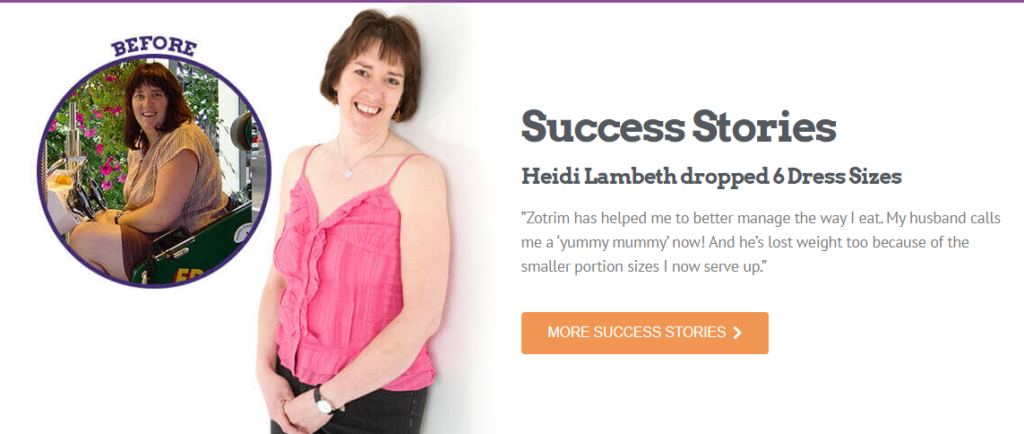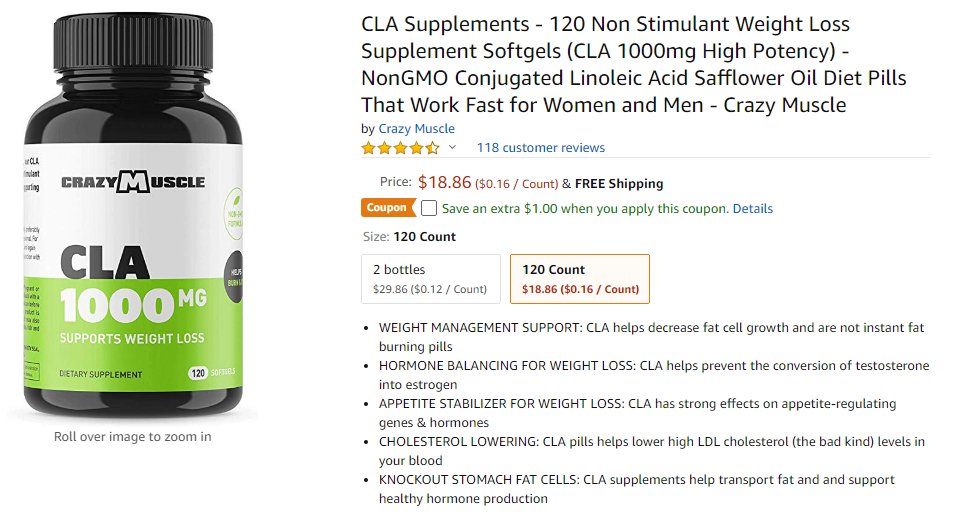
Table of Contents
Introduction
When you’re trying to lose weight, there is nothing worse than giving in to repeated hunger attacks and looking for that bag of chips after trying so hard to be “good.”
Don’t be too harsh on yourself though. It’s not 100% your fault; ghrelin, a hormone that is responsible for regulating your body’s appetite and informing you that you haven’t eaten for a long time, is one of the biggest culprits of your hunger pangs.
By eating more rich foods, drinking a variety of drinks between meals, and keeping stress at bay, you can overcome hunger and stay on track for rapid weight loss.
It can be difficult not to overeat. You eat healthily at home, and think you’re doing well, then go out and you’re surrounded with junk food constantly!
You’ll get hungry and will forget your diet and land at the local burger joint. Unfortunately, when this beocomes a habit, there’s a good chance that you will gain weight.
Althought there’s no magical pill or secret formula to successfully managing your weight and suppressing your appetite, we’ve compiled 15 helpful tips that can help to decrease your appetite.
Don’t Skip Meals
Some suggesting eating three meals a day, plus a snack. Some also recommend not going more than 4 hours without eating your next meal.
This is especially important when it comes to avoiding this annoying stomach growl, as it keeps blood sugar and hunger hormones stable.
But, what’s the most important rule here?
It’s a great idea to have breakfast. Many believe it to be the most important meal of the day (yes, our mothers were right). Eating a hearty breakfast will help reduce hunger hormone levels and keep your stomach satisfied throughout the day.
Add Vinegar And Cinnamon To Your Diet
Would you like to add a little flavor to your calorie-free food and drink? Forget about sugar; There are many flavors and spices that make food healthier and tastier!
Vinegar, which has been proven to lower the glycemic index (meaning it metabolizes food more slowly), gives roast, salad dressings, sauces, and vegetables a flavor without the addition of many calories.
For a warm fragrance, add cinnamon to everything, from coffee to smoothies to chili. Like vinegar, cinnamon slows down the rate at which food reaches the stomach from the intestines. This keeps you full for much longer and helps prevent gluttonous behavior throughout your day!

Drink Water!
If you feel like you’re starving, pour yourself a glass of water or a bottle of seltzer; this will help calm the need for snacks.
In addition to brain fog and fatigue, mild dehydration can create a sensation that can easily be mistaken for hunger.
On the other hand, liquid calories like juices and soft drinks don’t fill you up, and their quick digestion leads to spikes in insulin. It’s best to pass on the sugary beverages and soda, and stick to water as much as possible.
If you want a bit of flavor, feel free to flavor your water with lemon, strawberries, or cucumbers, but don’t fill your drinks with calories.
Try to drink at least three-quarters of a liter of water a day. Also, drink a glass about 20 minutes before each meal to satisfy your appetite. It could make a huge difference.
Water is obviously one of the best things you can put in your body. It keeps you hydrated and removes all the toxins that may have settled in your system.
Eat When You’re Not Hungry
If you are starving, you overeat. We know, a revolutionary idea! If you overeat, you feel full, but then the insulin level rises, making you feel tired and then hungry again. Then you end up overeating, and then this cycle continues.
Instead of trying to resist hunger, get down to business. If you eat when you are not hungry or are only slightly hungry, eat less, and strive to eat more slowly. Eating less all day is great, but having more energy is also a huge plus.
Eat Slowly
If you ingest food, there is a noticeable delay before you feel any satiation. This delay is usually between 10 and 30 minutes.
Because of this delay, we tend to eat more than necessary. And the faster we eat, the more we consume, especially later during a meal.
The solution: chew your food 10 times before you swallow. If you follow this simple rule, you will eat more slowly, which will give your brain and stomach more time to communicate and create that feeling of satiety.
You will also enjoy the taste of your food more if you take the time to savor it.
Sleep!!!
Sleeping isn’t just a luxury — it’s a necessity! Two hormones, ghrelin and leptin, regulate our appetite, and both are directly influenced by the amount of sleep we get.
These hormones work in a sort of “check and balance” system to control the feeling of hunger and satiety. Seven hours of sleep a night helps the hormones to function properly, which in turn reduces appetite.
Don’t Overstress Yourself
With this in mind, the most important thing to note when you discover that you’re eating emotionally is to find ways to redirect your stress or anxiety, so that it does not involve food.
Connect with a friend again. Get a massage. Immerse yourself in motivational books. And of course, go out and do something active! Being active will revive and release endorphins to help you alleviate that stress!
Start Your Day With Oatmeal
Eating oatmeal, steel-cut oats, or fast oats is a great way to suppress your appetite until noon. Oatmeal has a low glycemic index. This means that it does not cause hunger spikes in blood sugar.
Oatmeal is also high in fiber, which slows down the rate at which the body digests and absorbs carbohydrates. Eating a portion of oatmeal with almond milk and some chopped apples or grapefruit is a healthy option to suppress your appetite.
The benefits of oats are greater when coated with brown sugar or maple syrup, which can lead to an increase in blood sugar, followed by a drop in blood sugar. This can make you hungry long before lunch.

Fill Up On Protein and Fiber
Both fiber and protein make you feel full longer. There is a reason why a vegetarian omelet prevents you from eating better until lunchtime than a carbohydrate-laden sandwich.
For maximum benefit, strive for protein to make up around 30 percent of your total caloric intake.
Feel free to add soups, salads, and sandwiches to high-fiber foods like beans, peas, chickpeas, and lentils, so that you have a bit of variety with your meals and prevent mindless snacking throughout the day.
Exercise Before a Meal
Exercise is another effective and healthy appetite suppressant.
A study based on 20 different studies found that appetite hormones are suppressed immediately after training, especially during high-intensity workouts.
A lower level of ghrelin was found in the body, a hormone that makes us hungry, and higher levels of “filling hormones” like GLP-1 and PPY.
Just ensure that not too much time elapses after the end of your workout. If you wait too long, your hunger will increase astronomically, which can lead to overeating and defeat the purpose of exercising right before your meal.
Eat bulky, low-calorie Foods
Reducing your overall food intake while on a diet can lead to cravings. This can lead to a relapse to excessive consumption.
However, diet does not have to mean being hungry. Some foods are rich in nutrients and energy, but are low in calories. This includes beans, whole grains, vegetables, fruits.
Eating a large amount of these foods prevent the stomach from growling and empowers one to burn more calories than they consume.
Take Supplements

Appetite suppressants are types of dietary supplements that can potentially reduce appetite, which can lead to lowered food intake and promote weight loss.
Conjugated Linoleic Acid (CLA) is a polyunsaturated fatty acid that occurs naturally in foods like milk and beef. It is also sold in concentrated form as a weight loss supplement.
CLA has been shown to influence the genes and hormones that regulate appetite. It can also increase the number of calories burned at rest, increase muscle mass, and stimulate fat loss.
Taking CLA, however, can cause some unpleasant side effects, such as diarrhea and gas for some.
Depending on your condition, some supplements may potentially cause long-term supplement can also cause serious complications, such as liver damage and increased inflammation. Feel free to consult a physician or nutritionist if you have a medical condition of some sort.
Dark Chocolate
When your craving for sweets and fruit can’t be satisfied, eat a few pieces of dark chocolate. Unlike milk chocolate and other desserts, the intensity of the dark chocolate flavor naturally tells our bodies enough.
Try dark chocolate with at least 70% cocoa – you’ll find it hard to consume more than a few squares!
Be sure to check the label when you buy dark chocolate. Many brands still call their chocolate “dark”, even when it contains less than 70% cocoa.
Think Before You Snack
Hunger is not always the reason to eat. For many people, there are several emotional triggers, such as boredom or stress, which are often masked by hunger.
The next time you are hungry between meals, consider the last time you ate. If it was less than three or four hours earlier, your stomach is not growling, and you are not weak or tired, you are probably more emotionally unhappy than actually physically hungry.
Feel free to grab a journal of some sort and make note of each time you eat something when you know you’re not hungry, so you can identify and intercept emotions before they get worse.

Stick With The Routine
Sometimes we slip, and that’s okay: a healthy life is not an all-or-nothing offer. It is essential to make mistakes and understand that it is possible to get back up and develop ourselves.
I know you can. Believe in yourself, and try to incorporate my suggestions into your life, and let’s see how you are.
Conclusion
Excessive food consumption can cause a relapse of overeating. Instead, eating a good amount of the right foods can reduce cravings and hunger throughout the day.
A person can suppress their appetite by eating more protein, fat, and fiber during meals. By stocking up on vegetables and legumes, a person can also feel full longer.
Trying different spices like ginger and cayenne pepper, and drinking tea, can also help fight unwanted food cravings.
By all means, you don’t need need to implement all 15 suggestions in this article. Pick a few to start, and strive to develop those good habits. The key is to simply start!

References
https://www.webmd.com/diet/ss/slideshow-weight-gain-shockers
https://link.springer.com/article/10.1007%2Fs40279-013-0120-3
